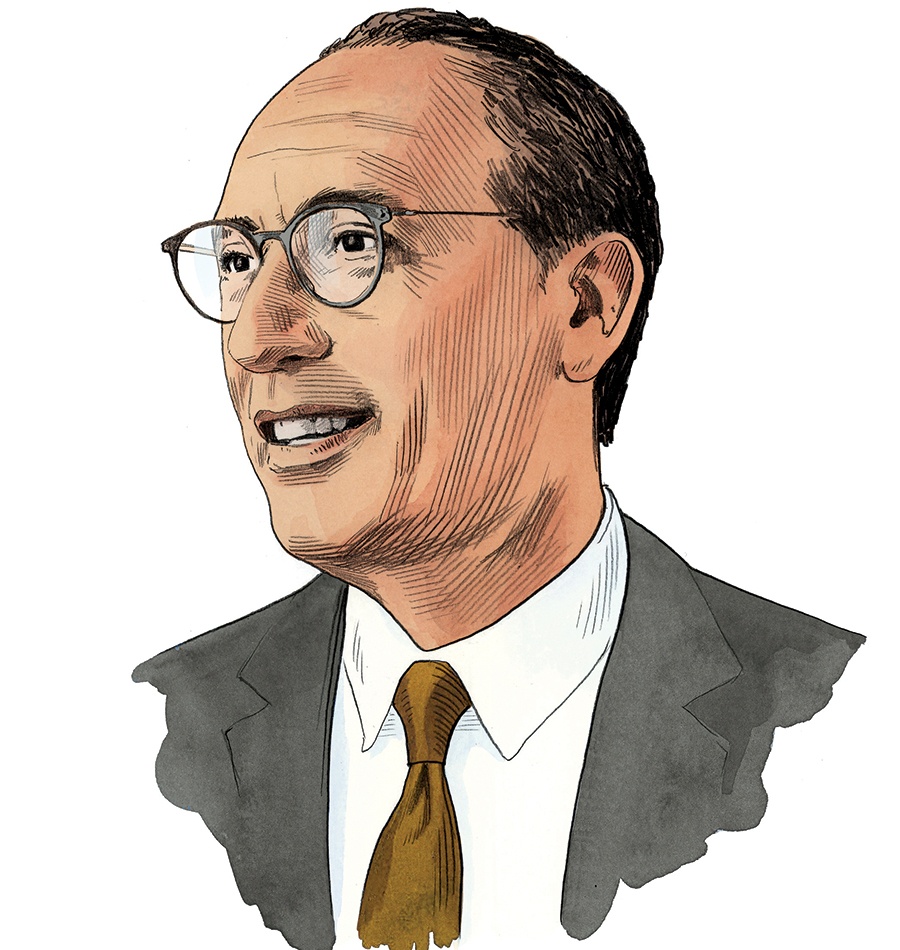Power List Q&A: Beth Israel Lahey Health President Kevin Tabb
Beth Israel Lahey Health President and CEO Kevin Tabb on coronavirus and healthcare mergers.

Photo illustration by Joe McKendry
When Kevin Tabb completed an un-precedented five-hospital merger in 2019, he likely figured it would be the most challenging moment of his career. Then the coronavirus pandemic hit Boston, and he found himself thrown into the gauntlet of keeping masks and gloves flowing to his team and maintaining staffing levels across each of his facilities even as workers tested positive for the virus. In the midst of it all, Tabb found time to talk to us about his role as a leading voice in the city’s vital healthcare sector.
What will Boston look like once we get past the initial surge of coronavirus patients and into late spring and early summer?
Time will tell. But I have no doubt that we will emerge on the other side, and that we will ultimately emerge stronger. We have experienced healthcare institutions and, more broadly, leaders in other communities throughout the United States and the world. Boston is uniquely blessed with a set of leaders who are smart, caring, interested, and involved. I have not ever found a community quite like this before.
To make it through this crisis, how much depends on the city’s leaders, and to what extent is it in the hands of the broader community?
I think it’s both. There has to be leadership in times like this. A vacuum of leadership leads to an absence of responses, which turns the appropriate worry that people have into panic. The presence of leadership helps galvanize the larger community that will ultimately make the difference.
There have been a number of healthcare mergers in the region. Does that make the area more reliant upon the small group of individuals, including you, at the tops of those chains?
Paradoxically, as we have gotten larger and more complex, it’s meant that we have created a diversified leadership team that is not dependent on a single person. The thing that I’m most proud about is the people who are part of this organization, and the leadership team we’ve created.
You and Beth Israel Lahey Health are involved not only in trying to influence the governor and legislature on healthcare regulations, but also on gun violence and food access. Why is it so important to put your organizational muscle behind those things?
It can’t be overstated how much of a role Beth Israel Lahey Health has in voicing the important issues of the day. We are a healthcare organization, and we are also the second-largest employer in the state of Massachusetts. That means we represent a broad, diverse community of staff, and we have responsibilities to the community that go well beyond the narrow confines of what people would traditionally define as healthcare. We are more aware than we have ever been of the social determinants of health, including things like housing, food deserts, and gun violence. We have a responsibility to speak up in a way that is different than if we were a smaller player.

